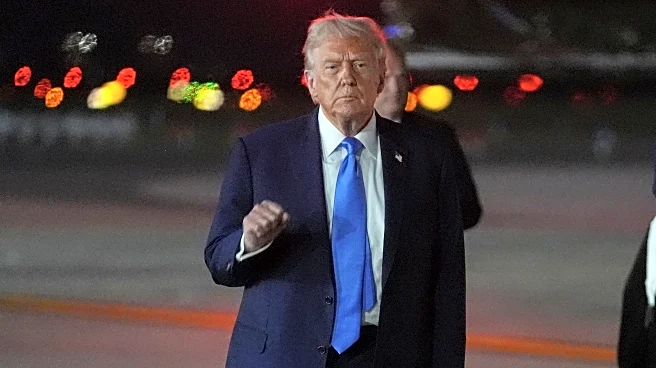Watched by the world, President Donald Trump returns to the United Nations on Tuesday to deliver a wide-ranging address on his second-term foreign policy achievements and lament that “globalist institutions have significantly decayed the world order,” according to the White House.
World leaders will be listening closely to his remarks at the U.N. General Assembly as Trump has already moved quickly to diminish U.S. support for the world body in his first
eight months in office. After his latest inauguration, he issued a first-day executive order withdrawing the U.S. from the World Health Organization. That was followed by his move to end U.S. participation in the U.N. Human Rights Council, and ordering up a review of U.S. membership in hundreds of intergovernmental organizations aimed at determining whether they align with the priorities of his “America First” agenda.
Global leaders are being tested by intractable wars in Gaza,Ukraine and Sudan, uncertainty about the economic and social impact of emerging artificial intelligence technology, and anxiety about Trump’s antipathy for the global body.
Here's the latest:
At 9:50 a.m. ET, Trump will deliver remarks to the United Nations General Assembly. He’ll then take part in a series of bilateral meetings with world leaders across the late morning and early afternoon.
In the evening at 7:20 p.m., he’ll attend and give an address at a U.N. reception before returning to the White House.
Trump will address the annual UN General Assembly later Tuesday and Secretary of State Marco Rubio said the president would call for it to act on various crises instead of just debating them.
“I think what the president’s going to do is challenge the U.N. to find its meaning and its purpose and its utility as an organization because it it doesn’t seem to be doing the job,” Rubio said in an interview on “Fox and Friends.”
Rubio noted that in his private life, Trump had once offered to help renovate the U.N. headquarters in New York but had been turned down.
“I think it’s emblematic of how feckless the U.N. has become as an organization,” he said. “It’s just a place where once a year a bunch of people meet and give speeches and write out a bunch of letters and statements but not a lot of good, important action is happening. The U.N. has a lot of potential but it’s not living up to it right now.”
A new AP-NORC poll shows U.S. adults are more likely than they were a year ago to think immigrants in the country legally benefit the economy. The finding comes as the Trump administration is imposing new restrictions targeting legal pathways into the country.
The survey from The Associated Press-NORC Center for Public Affairs Research finds that Americans are more likely than they were in March 2024 to say it’s a “major benefit” that people who come to the U.S. legally contribute to the economy and help American companies get the expertise of skilled workers.
▶ Read more about the poll on immigration in America
World Health Organization spokesperson Tarik Jasarevic noted “some observational studies” that have suggested a possible association between prenatal exposure to acetaminophen, or paracetamol, and autism, “but evidence remains inconsistent.”
Several studies conducted afterward have “found no such relationship,” he said.
“If the link between acetaminophen and autism were strong, it would likely have been consistently observed across multiple studies,” Jasarevic told reporters in Geneva on Tuesday.
“This lack of replicability really calls for caution in drawing casual conclusions about the role of acetaminophen in autism,” he added.
Jasarevic noted that WHO advises that medicines in pregnancy should always be used with caution, especially in the first three months, and in consultation with a patient’s doctor.
















